Like Vasco de Gama and other Portuguese explorers, Lisbon, the city built on seven hills, awaits our discovery.
You are currently browsing the archive for the Uncategorized category.
T-train to Shanghai– Last leg of the trip
We left Beijing Thursday evening around 7:30 PM on the sleeper train, and arrived in Shanghai the next morning about 9:30 AM. The “best” bunks are in the 4-person cabins (2 on each side of the tiny room) because they have a door that slides shut. There are also bunks in the hallways — three bunks high — but everyone walking to the bathroom or the dining car passes right by all night long. John had the top bunk on the right and I was on the bottom right. On the left bottom bunk was a Chinese lady about my age who spoke no English and on the top was a young man who was a student in Beijing whose major is computer translation (“translating Chinese into English efficiently on the Internet), so he spoke very good English even though we were the first foreigners with whom he had ever spoken. His only experience with the language was in English class. We really enjoyed meeting him and pumped him with lots of questions, especially when we found out he grew up in Inner Mongolia.
We received the royal treatment when we arrived at the Shanghai Railway Station. We were met at the train and chauffeured right to the Delta terminal at Pudong Airport an hour and a half away. This was a surprise that Tongan and Rui had arranged for us, and it saved us hours of public transportation in the rain. What a blessing! The last part of the vacation was the 18-hour trip from Shanghai to Savannah. It was great to see Brian and Sean at the airport waiting to drive us home!
My new rolling backpack held up under all conditions in China, but see what the U.S. airline did to it on the last 45 minutes of the trip! And all of the contents were soaking wet. They are paying me to purchase a new one. To be prepared for our next trip, I’m going to upgrade to the same one (Osprey) John has because it has a few extra bells and whistles for convenience and durability.
NEITHER RAIN NOR SLEET NOR HAIL STOP THE CHINESE COMMUTERS
Even really rainy days don’t stop people from bicycling to work. They all have nifty rain ponchos which cover not only themselves but the stuff they carry in their handlebar basket. Motor scooter drivers have even larger and more elaborate ponchos that snap onto their scooters.
Farmers work in the rain. Building construction and road crews work in the rain. Pedestrian traffic is just as busy in the rain. In fact, it’s a great day for the street vendors who hawk their wares to passers -by. They sell lots of umbrellas. We bought a cool leopard skin – looking one for $1.40.
We stood in a queue for about an hour one day in a heavy rain waiting for a taxi at the train station. So many in China do not have personal cars; life goes on in spite of the weather.
BEHOLD the infamous squatty potty. Oh, the stories you won’t hear!
One afternoon after a long bus ride to and tour of the ancient water township of Zhouzhang, the driver said he had time to stop and show us one more ancient historic site. Surprise! It turned out to be a Buddhist Temple complete with monks and people offering incense to idols. Since the whole visit was conducted in Mandarin, we blessedly didn’t understand a word but we surreptitiously stood in the background and observed some of the goings-on. Later in the bus on the way back to our hotel, we listened to our friends explain what had gone on behind the scenes that we opted out of. It turned out to be a divine opportunity to share our faith all the way back to Suzhou. And because they realized, after the fact, that they had actually been scammed and pressured into purchasing very expensive incense to wave before the Buddha idol to bring their family "luck", they were really interested in hearing about Christianity. We opened our mouths and the Holy Spirit filled us with words just for them.
The Humble Administrator’s Garden, built during the 16th century, is a really pretty park, and is the largest of all the famous “gardens” in Suzhou. The four main elements of a classical garden are: rocks, water, architecture, and plants. The Chinese have a saying about “classical” gardens: one step, one scene. The garden is so well planned and laid out that every time you take a step, the scene changes. We spent three or four hours walking and climbing everywhere and snapping hundreds of pictures. Even on that foggy, drizzly day, it was absolutely beautiful.
Our bags are packed with only a few last minute items to toss in tomorrow morning, but I’m still working on my “To Do Before the Trip” list. That is now longer than my “Don’t Forget to Pack” list. I’m working on the important things first and I’ll see about the stuff at the bottom of the list (like clean the toilets). Either the boys will do those things or ignore those things. Which ever, I’m not going to even think about them after I walk out the door at 4:45 AM. Vacation begins!
I’m praying that two weeks from now we return to a country heading in the right direction. I hope our citizens vote to save the family, save marriage, save democracy, save faith and freedom. Yes, the economy is in serious straits but we need to look down the long road. We must choose to save the values that this nation was founded upon so that the Lord will keep His hand of blessing on our land.
The Bible teaches that the “Eye of the Lord” is on us, and I’m grateful for that. His eyes are upon us no matter what part of the planet we are on. We are now also under the watchful eye of the U.S. State Department. Citizens traveling abroad can register with them we just found out, and so we did. And there are about a quarter of a million closed-circuit television cameras in the city of Beijing alone, so Big Brother will be watching, too.
Seems like every week I learn about something else that I am ignorant about with regard to international travel. This week it’s Homeland Security’s U.S. Customs and Border Protection agency. When an American citizen comes back to the U.S. after traveling abroad, s/he must clear customs. One of the stops is filling out one or more entry forms. You need to declare everything that you have purchased on your travels and pay import duty tax on those items. If you have new items that you don’t have a receipt for, you must pay the tax whether or not you owned those things before you left the U.S. For example, John bought a mini laptop and a digital camera several weeks ago. To avoid the tax on items already owned, he must complete a Certificate of Registration (CBP form #4457) and submit proof of purchase to the CBP. The items on the certificate must be physically verified by a border agent. So on our short layover in Atlanta on our way to China, we need to find Border Protection and get our proof of ownership paper certified. Before being cleared to board our aircraft, we could also be selected for a random search of our luggage or even a personal search by Border Protection — not counting searches by the TSA (Transporation Security Administation). Well, at least now we have a heads-up and won’t be totally shocked if we are chosen for that experience. And I guess it will be preparation for lack of freedoms in a non-democratic land.
The freezer is now stocked with fifteen TV dinners for the boys’ dining pleasure while we are in China. But these aren’t the Swanson aluminum tray meals of the 1950’s that I remember with the processed meat, fake mashed potatoes and tiny green peas. With names like Cavatappi Bolognese and Ravioli Pomodoro, there are some interesting choices which also include lasagna, scalloped potatoes and meatloaf, and vegetable lo mein. They’ll be on their own for breakfasts and lunches, but, at least after a long day on campus, dinners will be more than sandwiches, cereal, or, more likely, granola bars. While John and I are feasting on baked snake or fried silkworms, they’ll probably be more than happy to eat something that they recognize. Their palates aren’t quite as adventurous as ours! I hope to sample as many as possible of the Eight Great Traditions (regional cuisines of China) plus the local foods.
The “laowai” in China is advised not to take some of local behavior too personally but to be flexible and prepared for people to act very differently. Spitting is very common, even indoors. Pushing and jostling in crowded areas, jumping ahead of people in line (queues), as well as ignoring rules (such as “no smoking”) happen often. Locals often laugh aloud at foreigners and catcall — actually yelling out “laowai” as they walk by. Anyone who looks obviously different will be intensely stared at. These behaviors are seen more frequently in the rural parts of the country but also take place in the large, metropolitan areas.
There’s a list of scams a mile long to beware of. A big one is counterfeit money. The 50 and 100 note yuan are often passed along to unsuspecting people by the street vendors and taxi cab drivers. We need to keep an eye out for the color, the watermark, the paper, and the braille dots in the lower left corner of the front side. The color, apparently, is hard to imitate, and the watermark on fake ones is not clear. If we could carry around a black light, we could see if the paper was too bright.
Then there’s the tea house scam. Tea houses are everywhere — pleasant respites to sip tea and relax in beautiful surroundings. But beware! Students “practicing their English” invite you to a tea tasting: trying different teas, learning about what ailments or parts of the body the teas were good for, what water temperature was appropriate for that tea, how to properly hold the cups, etc. Then at the end you are not only overcharged for the tea, but also charged for the room, the tea pot, the lesson, among other things. Duped tourists have been known to pay several hundred dollars!
Of course, like in other countries, there are the taxi drivers who take you out of your way and add many miles to the trip. (Some rickshaw drivers do the same). The taxi drivers must have government licenses but some do not, and you have to be knowledgeable about what their license plates must look like. In China, well in Beijing and Shanghai anyway, all taxis charge you by the mile and sometimes by the minute (at red lights and in traffic jams — any time you’re traveling less than 12 km/hour). The customer also pays for tolls. Government taxis all have machine printed receipts that spell out all the details of the fare so that’s another word to learn — “fapiao” (receipt). That way you have some recourse if you feel gypped.
And there are the pickpockets! Everywhere. We must carry our passport, money, credit and debit cards, and all important papers with us at all times — in a “secret” security belt under our clothes. My backpack has steel enforced straps and hidden zippers and a way to hook it to my chair in a restaurant so it can’t be snatched away. Oh, the stories I’ve read from those who learned all these lessons the hard way.
Might it be less dangerous to go swimming with the crocodiles in the Nile?!
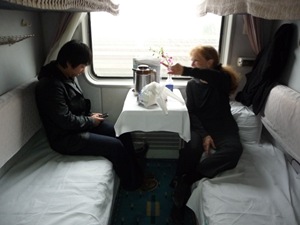
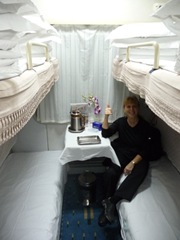
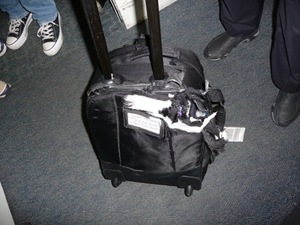
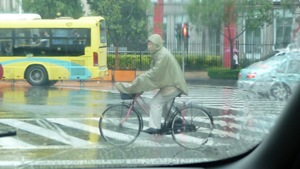
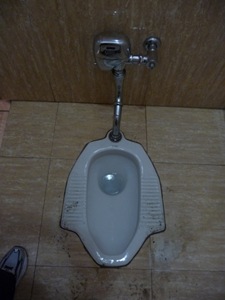
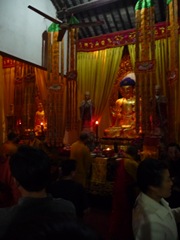
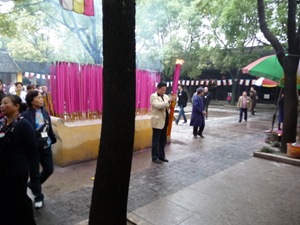
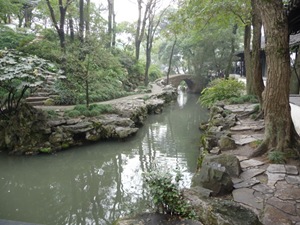
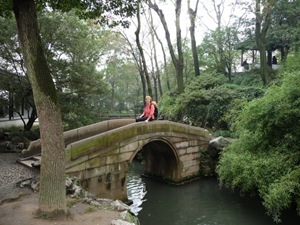
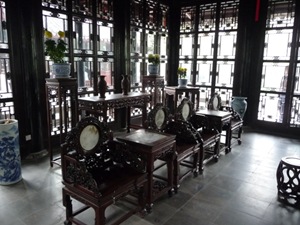
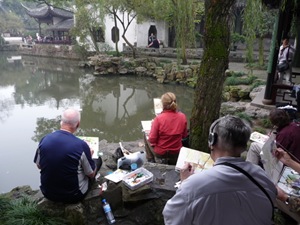
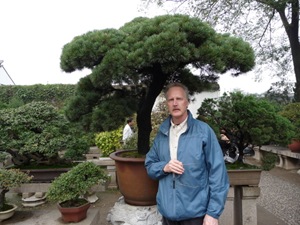
Recent Comments